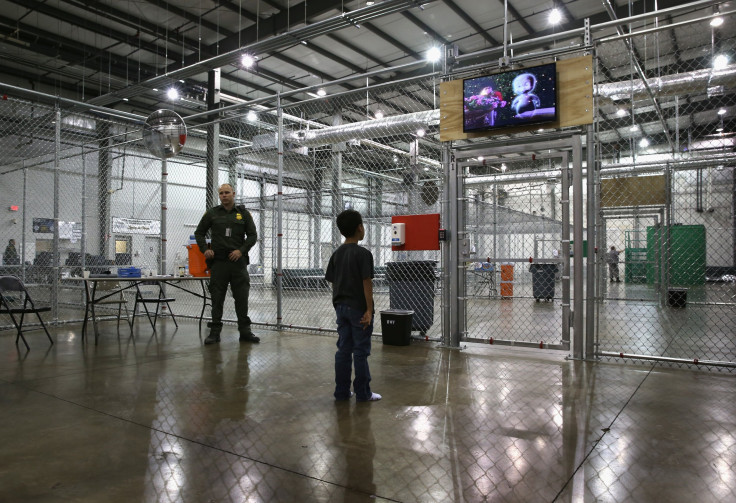
The Obama administration will release more asylum seekers and seek to end the long-term detention of women with children in family immigration jails. Department of Homeland Security (DHS) Director Jeh Johnson announced the changes on Wednesday, saying that the current policy of detaining women and children was an inefficient use of resources that should be “should be discontinued.” DHS oversees both United States Citizenship and Immigration Services (USCIS), who process immigration requests and Immigration Customs Enforcement (ICE), who oversee undocumented immigrant’s apprehension and detention. In order to release the more credible asylum seekers more quickly, the administration will set lower bond rates and expedite initial interviews. The goal is to allow asylum seekers to live outside of immigration jails while their cases proceed through the courts.
“I am directing that USCIS conduct credible fear and reasonable fear interviews within a reasonable timeframe. In substance – the detention of families will be short-term in most cases,” Johnson said in an official statement.
The decision follows years of tension between the Obama administration who is trying to avoid a massive release of undocumented immigrants who entered the country illegally and critics of family detention who say that the facilities are substandard. That tension had come to a head in different ways. Most recently, top Obama official Cecilia Muñoz was heckled and protested against while defending family detention to the annual convention of The American Immigration Lawyers Association (AILA). Crystal Williams, AILA’s executive director, told the Latin Times that it wasn’t shouting down Nuñez that brought the DHS changes.
“I think that it was all part of the pressure that’s been put on the administration in the past years, but especially in the last few months,” Williams said. “The real pressure was from congress. That was the most powerful thing that pushed on the [Obama] administration to make changes.”
Mistrusting of past reform efforts, AILA representatives welcomed Johnson's announcement with skepticism.
“I want to be optimistic, two realities remain. First, [...] the Secretary's plan will be defeated if [ICE] still refuses to release families, finds excuses not to apply reasonable bonds, or does not do so in a timely manner, or if [USCIS] suddenly reverts to the low rate of credible fear findings that occurred in the early days of family detention, before the families obtained legal representation,” Victor Nieblas Pradis, President of AILA said in a statement.
Other activists were even more critical, with some telling the L.A. Times that the thought DHS was just buying time. Others argue that bail should be granted even more freely than DHS requires. For example, one the main ways that a detainee who enters the country illegally can get out of an ICE jail is a family sponsor. Some immigration attorneys see family connection as a virtual requirement for release. Kim Hunter, an asylum attorney and member of AILA argues that this is an unnecessary requirement not mandated by law, and that it shouldn’t be needed for asylum seekers. (Hunter, who represents asylum clients as a part of the CARA Family Detention Pro Bono Project, is not an AILA spokesperson.)
“[There are] NO requirements that an asylum applicant have a sponsor. This is yet another example of the high barriers DHS puts in front of these families,” Hunter told the Latin Times in an email.
Once released, asylum seekers receive little to no benefits of government support, according to Hunter. (Schooling, however, does continue -- children present in the U.S. have access to K-12 education regardless of immigration status). In her experience, most of the women do end up staying with family members, often husbands who have already immigrated to the U.S. It’s still a precarious existence. Once outside of ICE walls, however, immigrants can more easily access volunteer attorneys and charity services.
Johnson, the DHS official, wished out loud in his statement that asylum seekers would stop crossing the border. In the future, he hopes that asylum claims will be settled in petitioners’ countries of origin.
“Our larger hope is that Central American families will heed our repeated calls to find a safe and lawful path for the migration of children to the United States. Late last year, we established in-country refugee processing in Guatemala, El Salvador and Honduras, for the children of those lawfully present in the United States [....] I have personally seen enough to know that the path of illegal migration from Central America to our southern border is a dangerous path and it is not for children,” he said.
© 2025 Latin Times. All rights reserved. Do not reproduce without permission.




